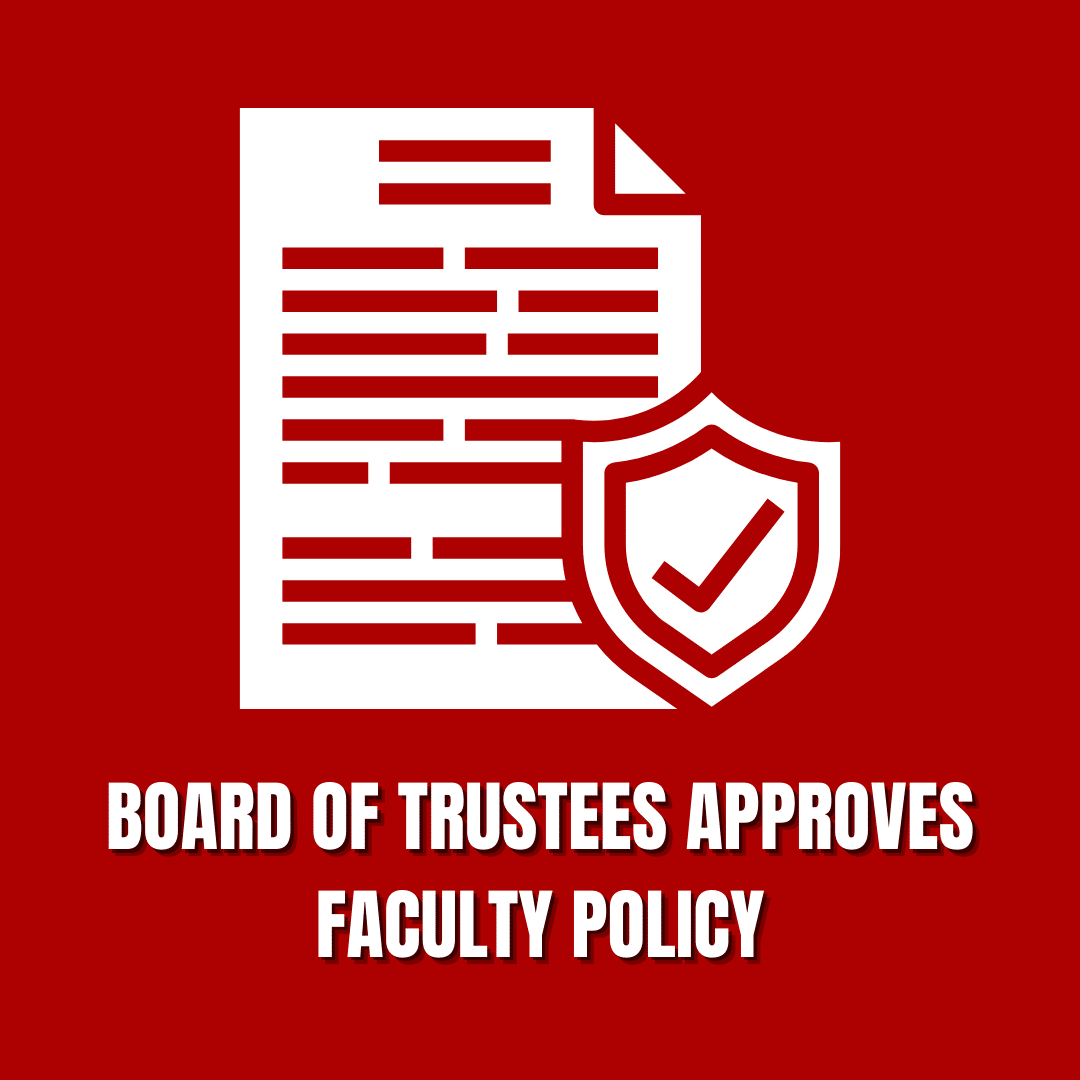By Madelin Shelton —
Multiple members of a U of L faculty group rallied Oct. 29 to pressure the Board of Trustees to reject a proposed Faculty Accountability Policy. Despite objections, the Board of Trustees passed the policy and it went into effect Friday.
The rally, held in Grawemeyer Hall, expressed dissatisfaction with the new policy by the American Association of University Professors (AAUP) and called on the board to send it back for additional revisions.
“The FAP is a radical administration proposal for the disciplining of individual faculty members, including for various vague offenses, such as ‘disrespect’ and ‘chronic attendance problems,’” the AAUP said in an email to faculty.
Michael Cunningham, Professor and Psychologist in the Department of Communication and the current President of the U of L AAUP chapter, said, “We see that our rights and our prerogatives and the administration’s respect for faculty is being trampled. Then we were asked to endure pay cuts, benefits cuts and retirement plan cuts.”
The AAUP has outlined five problems with the policy. The AAUP claims it is in direct violation of the Redbook, the basic governance document for U of L. The Redbook gives faculty legislative authority over all policies and procedures pertaining to personnel.
This new accountability policy was drafted by a Faculty Accountability Committee created under former Provost Beth Boehm. The AAUP argues faculty control over the creation of this policy was inadequate according to the Redbook.
David Schultz is a U of L biology professor and the current Faculty Senate Chair. As the Faculty Senate Chair, he sits on the Board of Trustees as the faculty constituency representative. He does not see the new policy as violating the Redbook. “If there’s going to be bad conduct by the faculty which is going to be, and historically has been, a rare event, the administration still has the power under the Redbook to enact then some sort of corrective actions for that misconduct,” Schultz said.
The policy was in response to two separate incidents of faculty misconduct. In one a faculty member is alleged to have provided alcohol to underage students. In the other a faculty member is alleged to have not completed the mandatory annual human subjects protection training.
Schultz said that part of the reason this policy was created was an inconsistency in corrective actions put upon faculty in different units. “If a faculty member in one unit did something, and another faculty member in another unit did the exact same thing, you could end up with a difference in how the corrective action was applied. This policy is meant to make it a consistent application across all units,” he said.
Second, the AAUP states that the policy embodies unilateral administration decision-making about disciplining faculty. The policy outlines an undefined supervisor who will investigate alleged faculty misconduct and determine the extent of disciplinary action. The AAUP had proposed a faculty peer review step to the committee, but it was not included.
When asked about the extent of faculty input on the policy, Schultz said that faculty feedback was included throughout the entire process. “The policy went through numerous different faculty organizations for faculty input.” Specifically, Schultz mentioned that the policy went through the Faculty Senate Executive Committee multiple times, the Commission on Diversity, Race and Equity, and the Commission on the Status of Women. All of these, Schultz said, have a dominant faculty perspective.
The AAUP argues the policy lacks explicit due process and procedural justice protections.
The AAUP also says the policy ignores the need for creative problem-solving in perceptions of misconduct. Instead, they claim, the standards include little more than “administrator-imposed punishments.”
Schultz stated that the policy does not create a new power for the administration to use against faculty and clarified that although the policy has been put into effect, that does not mean it can’t be changed and revised later. “The provost has agreed to report back on how this is being applied and if the faculty senate feels there is problems with this policy, the senate can then take action, request changes, and bring this up to the provost and to the president as well,” he said.
Faculty asked for an emphasis on creative problem-solving to misconduct, but it did not end up in the final version. The policy instead included the following: “Faculty behavior may warrant remedial action. For example, a faculty member may be required to complete University-mandated training.”
According to the AAUP, “Not only does the statement not convey any expectation of insight and creativity, but it conveys a top-down mandate rather than a collaborative solution in which the faculty member is an active and equal participant.”
Finally, the AAUP declares that the policy undermines faculty morale by sending the wrong message at the worst possible time.
Cunningham also pointed to the Collaborative on Academic Careers in Higher Education (COACHE) report.
“The recent Harvard-U of L ‘Collaborative on Academic Careers in Higher Education’ (COACHE) report documented serious levels of U of L faculty dissatisfaction in nine major areas, including Governance, Leadership and Compensation,” said the AAUP’s email.
Cunningham, who attended the rally, was given five minutes to lay out the faculty’s case in opposition to the policy. Current Provost Lori Stewart Gonzalez spoke in favor of the policy, and ultimately the board approved it.
Once Cunningham and other members of the AAUP saw the board’s intent to move the policy forward, they walked out of the meeting before its official ending.
Work on the accountability policy began in 2019.
To date, the policy has not received an approval vote from the Faculty Senate or any other governing body composed of faculty.





